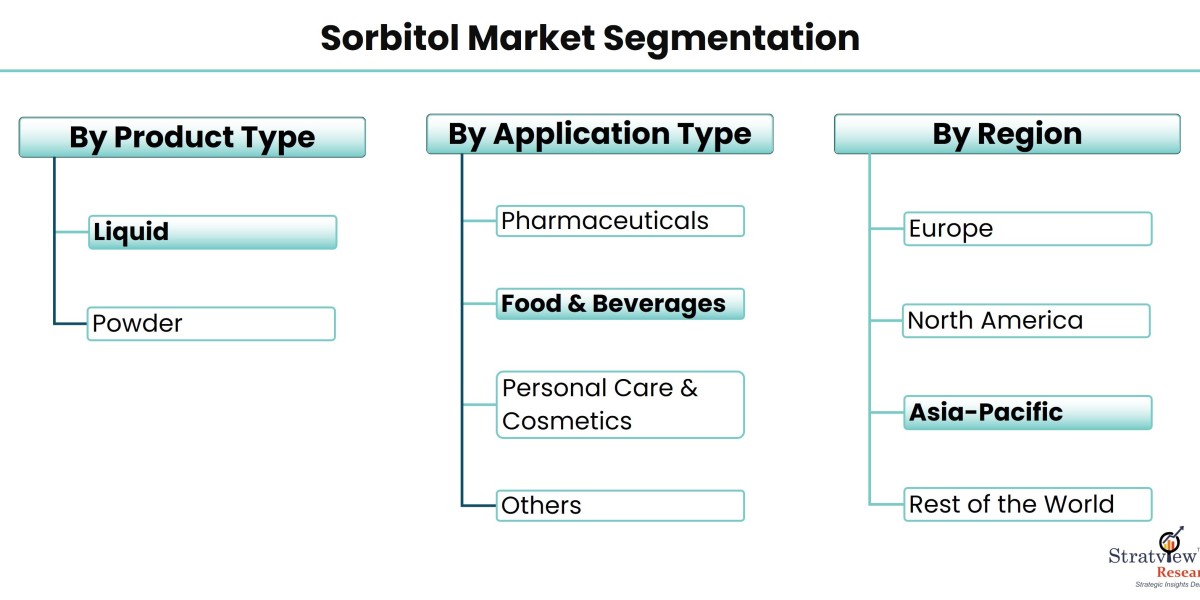According to Stratview Research, the sorbitol market was estimated at USD 1.52 billion in 2022 and is likely to grow at a CAGR of 5.58% during 2023-2028 to reach USD 2.1 billion in 2028.
In the ever-evolving landscape of the food and beverage industry, manufacturers are constantly seeking innovative ingredients that can enhance product quality, appeal to consumer preferences, and meet stringent regulatory requirements. One such ingredient that has emerged as a cornerstone of formulation success is sorbitol. With its unique properties and diverse applications, sorbitol has become a key ingredient in a wide range of food and beverage products. In this article, we explore the role of sorbitol as a vital component in the food and beverage industry and uncover the ways in which it contributes to product innovation and consumer satisfaction.
The Sweet Secret: Sorbitol's Sweetening Power
Sorbitol, a sugar alcohol derived from glucose, is valued for its sweet taste and lower caloric content compared to sucrose. It is approximately 60% to 70% as sweet as sucrose, making it an ideal sugar substitute in formulations where sweetness is desired without the added calories. This unique property has led to sorbitol's widespread use in sugar-free and reduced-calorie food and beverage products, including confectionery, baked goods, beverages, and dairy products.
Creating Healthier Alternatives: Sorbitol in Sugar-Free Products
With growing concerns about sugar consumption and its impact on health, consumers are increasingly seeking out healthier alternatives to traditional sugary products. Sorbitol provides a solution, allowing manufacturers to create sugar-free and reduced-sugar formulations without sacrificing taste or texture. In sugar-free candies, sorbitol provides sweetness and mouthfeel, while in beverages, it enhances flavor and contributes to a pleasing mouthfeel.
Texture and Stability: Sorbitol's Functional Benefits
Beyond its sweetening power, sorbitol offers functional benefits that improve the texture, stability, and shelf life of food and beverage products. As a humectant, sorbitol helps retain moisture, preventing products from drying out and extending their freshness. This property is particularly valuable in baked goods, where sorbitol helps maintain softness and prolong shelf life. Additionally, sorbitol's low freezing point and resistance to crystallization make it an excellent ingredient for frozen desserts and ice creams.
Meeting Regulatory Requirements: Sorbitol's Safety and Compliance
Sorbitol's safety profile and regulatory approval as a food additive further enhance its appeal to manufacturers. It is generally recognized as safe (GRAS) by regulatory authorities such as the U.S. Food and Drug Administration (FDA) and the European Food Safety Authority (EFSA), making it a widely accepted ingredient in food and beverage formulations. Its compatibility with other food additives and ingredients also makes it a versatile choice for formulators seeking to meet regulatory requirements while delivering high-quality products.
Innovation and Beyond: Exploring New Frontiers with Sorbitol
As consumer preferences evolve and demand for healthier, more natural products grows, the role of sorbitol in the food and beverage industry is poised to expand further. Manufacturers are exploring new formulations and applications for sorbitol, including in plant-based and clean label products. Additionally, advancements in processing technologies and ingredient synergies are unlocking new opportunities for sorbitol's use in innovative food and beverage formulations.
Conclusion
In conclusion, sorbitol's versatility and functional benefits make it a key ingredient in the food and beverage industry, enabling manufacturers to create healthier, more appealing products that meet the needs of today's consumers. From sugar-free candies to moist baked goods and refreshing beverages, sorbitol plays a vital role in enhancing sweetness, texture, and stability in a wide range of formulations. As the industry continues to evolve, sorbitol's importance as a key ingredient in food and beverage innovation is set to grow, shaping the future of product development and consumer satisfaction.








